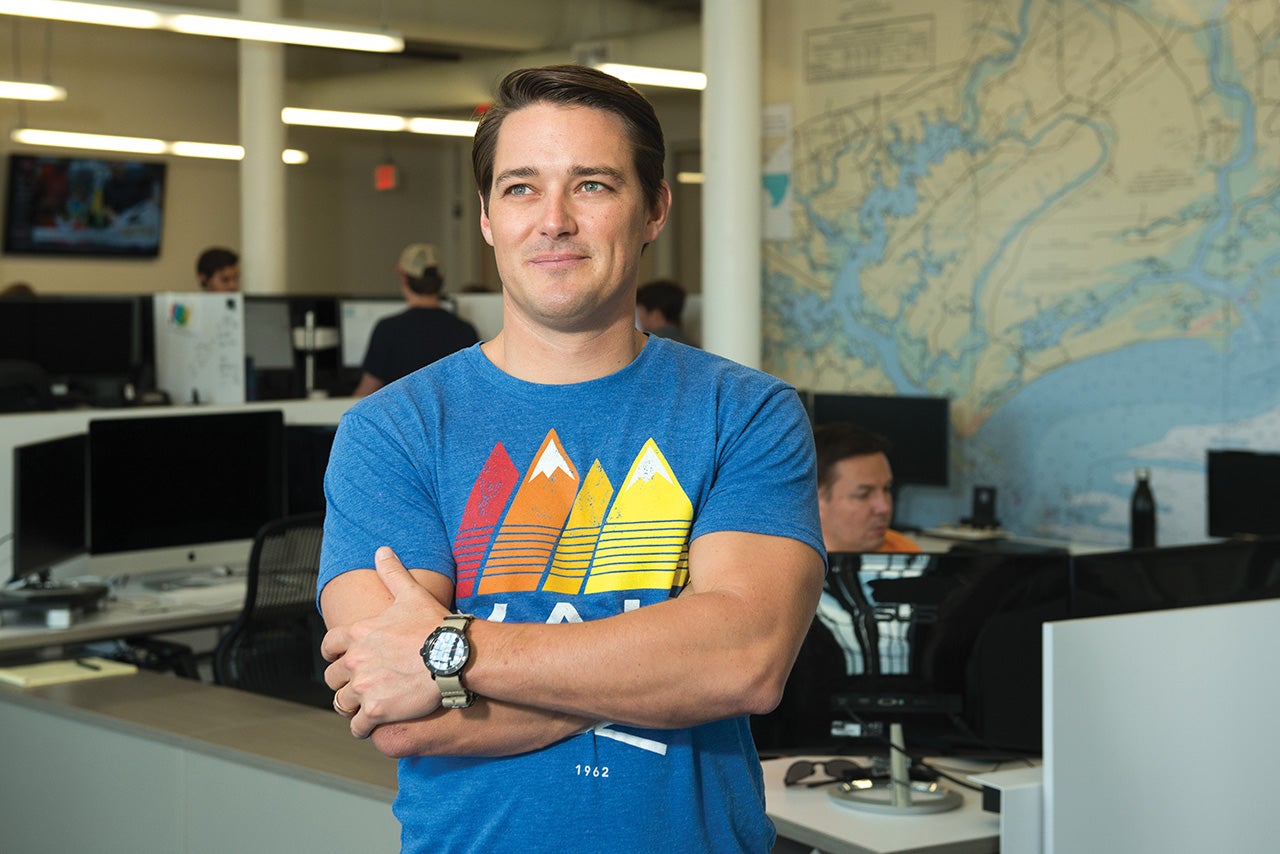When Hunter Stunzi ’07 transferred to the College in 2003, he didn’t know he’d be graduating into an economy in freefall.
“About $115,000 in student loans and no job,” he says. “It was a difficult time for me. I was torn between staying in Charleston and finding a decent job.”
But Stunzi ended up starting his own business – and thriving – right here in Charleston. Stunzi is the founder and president of SnapCap, a technology-enabled business lending startup that has connected and funded thousands of businesses with more than $250 million in loans since 2012.
A New England transplant, Stunzi made his way to CofC “sight unseen” from the University of Vermont to join the College’s sailing team. It didn’t take long for him to fall in love with the city.
“Right off, I fell in love with the town and the people,” he says. “I even ended up meeting my wife (Danielle Hershon Stunzi ’06) on King Street.”
He excelled at sailing and planned to go pro after graduation. But that all changed after he fell one point short of making the U.S. Olympic Team ahead of the Beijing Games in 2008.
“I had all this debt, no job and was supposed to be on the team – it all felt sort of tragic,” he recalls.
Stunzi, who majored in political science, returned to Charleston and took the only jobs he could get, working as a hotel bellhop and selling credit card readers door-to-door. Then, in early 2010, he got an entry-level job with Wells Fargo Financial Services in nearby Summerville. There, he learned the ropes of consumer finance and quickly became one of the top salesmen in the Southeast. But two years after Stunzi joined, the 14,000-employee division shut down in a single afternoon.
“I couldn’t believe it,” he says. “Here I am working for a great company, moving up, and boom – I’m unemployed.”
Later that year, he landed a job at Merrill Lynch and trained to be a financial advisor. It was there he got the idea for what would become SnapCap. “While researching options for a client, I did a quick Google search for ‘small business loans,’ and there was nothing reputable,” he says. “I knew at that moment there was a business opportunity.”
While most industries have been revolutionized by technology, business borrowing is still an analog process awash with paperwork and time-consuming in-person meetings. And with major banks consolidating and community banking in retreat, it only reinforced the business case for SnapCap.
“The process of borrowing is complex and inefficient,” Stunzi says. “When was the last time you actually went into a bank branch for a loan or anything?”
Stunzi and partner Chris Mettler pooled some money and launched SnapCap in 2012. The business started as an aggregator or matching service, connecting small businesses with fast-moving non-bank lenders. But, by 2014, the company was putting its own money to work in loans in nearly every state.
SnapCap differs from banks in a number of ways. For one, the company’s practice is almost entirely online. Businesses can apply online and complete an application in minutes, with a decision in hours. Fast and accurate risk decisions are made possible by technologies developed in part to serve the very banks they compete with: online bank fraud-detection and credit data all make this possible.
“You can learn so much about your customer without ever meeting them,” he says. “For example, how many banks do you think are reading Yelp reviews or looking at Facebook likes when they underwrite a loan to a new restaurant? There is more information out there than ever before about our customers. It’s actually scary. The trick for us has been piecing it all together quickly to make a smart risk-based decision.”
The novel approach to lending has paid off. His business grew from a “small shoebox office” to more than 22 employees. And he remembers his roots at the College, crediting those connections for some of SnapCap’s successes.
“My connections to the College have afforded me the ability to raise money and build this business,” he says. “To me, college wasn’t about the classes or grades; it was about learning to take responsibility for my future and seeing the world differently. The College shaped my perspective of the world, and I’m grateful.”
Photos by Reese Moore.





